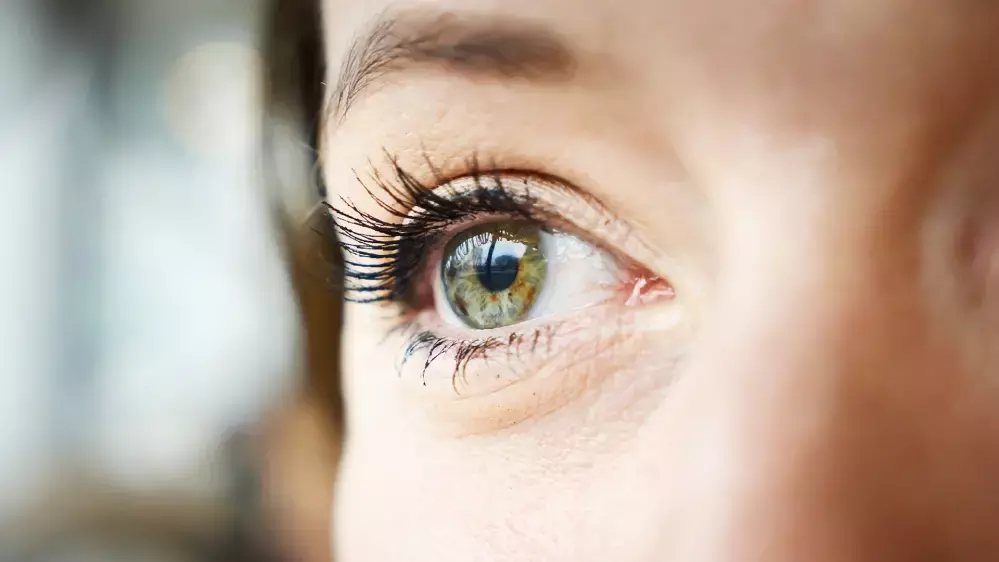- Home
- Medical news & Guidelines
- Anesthesiology
- Cardiology and CTVS
- Critical Care
- Dentistry
- Dermatology
- Diabetes and Endocrinology
- ENT
- Gastroenterology
- Medicine
- Nephrology
- Neurology
- Obstretics-Gynaecology
- Oncology
- Ophthalmology
- Orthopaedics
- Pediatrics-Neonatology
- Psychiatry
- Pulmonology
- Radiology
- Surgery
- Urology
- Laboratory Medicine
- Diet
- Nursing
- Paramedical
- Physiotherapy
- Health news
- Fact Check
- Bone Health Fact Check
- Brain Health Fact Check
- Cancer Related Fact Check
- Child Care Fact Check
- Dental and oral health fact check
- Diabetes and metabolic health fact check
- Diet and Nutrition Fact Check
- Eye and ENT Care Fact Check
- Fitness fact check
- Gut health fact check
- Heart health fact check
- Kidney health fact check
- Medical education fact check
- Men's health fact check
- Respiratory fact check
- Skin and hair care fact check
- Vaccine and Immunization fact check
- Women's health fact check
- AYUSH
- State News
- Andaman and Nicobar Islands
- Andhra Pradesh
- Arunachal Pradesh
- Assam
- Bihar
- Chandigarh
- Chattisgarh
- Dadra and Nagar Haveli
- Daman and Diu
- Delhi
- Goa
- Gujarat
- Haryana
- Himachal Pradesh
- Jammu & Kashmir
- Jharkhand
- Karnataka
- Kerala
- Ladakh
- Lakshadweep
- Madhya Pradesh
- Maharashtra
- Manipur
- Meghalaya
- Mizoram
- Nagaland
- Odisha
- Puducherry
- Punjab
- Rajasthan
- Sikkim
- Tamil Nadu
- Telangana
- Tripura
- Uttar Pradesh
- Uttrakhand
- West Bengal
- Medical Education
- Industry
Intensive blood sugar control of no significant benefit for eye outcomes in Diabetes: Study

USA: Intensive glycemic control (INT) compared with standard glycemic control does not have a protective role in eye procedures and surgical events in people with advanced diabetes, shows recent data from the VADT trial published in the journal Diabetes Care.
"There was no significant benefit of INT during the original trial period, or during the 17 years of follow-up in eye-related procedures, such as various procedures of diabetic retinopathy," wrote the authors.
The goal of ideal treatment of diabetes mellitus is to eliminate symptoms and to prevent, or slow, the development of complications.The complications include microvascular (ie, eye and kidney disease) and macrovascular (ie, coronary, cerebrovascular, peripheral vascular) which can be reduced through control of blood sugar, lipids and hypertension, smoking cessation, and aspirin therapy.
Nasrin Azad, Endocrinology Section, Edward Hines, Jr. VA Hospital, Hines, IL, and colleagues aimed to assess the long-term role of intensive glycemic control compared with standard glycemic control in accumulated eye procedures in patients with advanced diabetes.
For this purpose, the researchers compared the effect of treatment assignment on the accumulated number of eye procedures during the intervention period of the Veteran Affairs Diabetes Trial (VADT) (2000–2008) (median follow-up 5.6 years), the interim VADT follow-up study (2000–2013), and the full 17 years of VADT follow-up (2000–2017). They further analyzed data using various cardiovascular markers in two models. Model I included total cholesterol, LDL cholesterol, HDL cholesterol, triglycerides, systolic and diastolic blood pressure, and BMI. Model II included these covariates plus age and diabetic retinopathy (DR) severity score at baseline of the original trial.
The final analysis of the data showed a mild but nonsignificant increase in number of procedures and in retinal or retinal plus cataract surgery during the three periods of the study.
"We found no significant benefit of INT during the original trial period in eye-related procedures, such as various procedures for DR, or during the 17 years of follow-up in cataract surgery. However, after adjusting data for some known vascular markers, the increase in the number of eye procedures with INT becomes more prevalent," wrote the authors.
"This finding indicates that INT might not have a protective role in events requiring surgery in individuals with advanced diabetes," they concluded.
Reference:
The study titled, "Eye Outcomes in Veteran Affairs Diabetes Trial (VADT) After 17 Years," is published in the journal Diabetes Care.
DOI: https://care.diabetesjournals.org/content/early/2021/06/28/dc20-2882
Dr Kamal Kant Kohli-MBBS, DTCD- a chest specialist with more than 30 years of practice and a flair for writing clinical articles, Dr Kamal Kant Kohli joined Medical Dialogues as a Chief Editor of Medical News. Besides writing articles, as an editor, he proofreads and verifies all the medical content published on Medical Dialogues including those coming from journals, studies,medical conferences,guidelines etc. Email: drkohli@medicaldialogues.in. Contact no. 011-43720751


